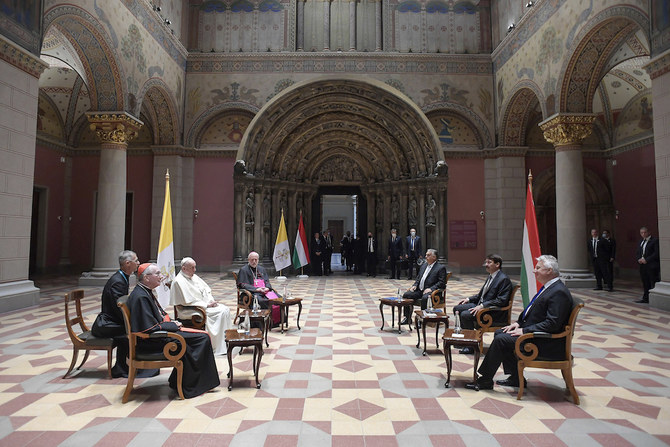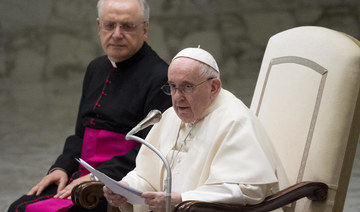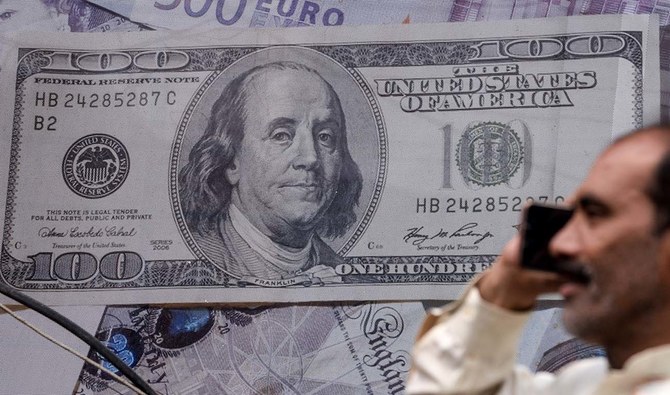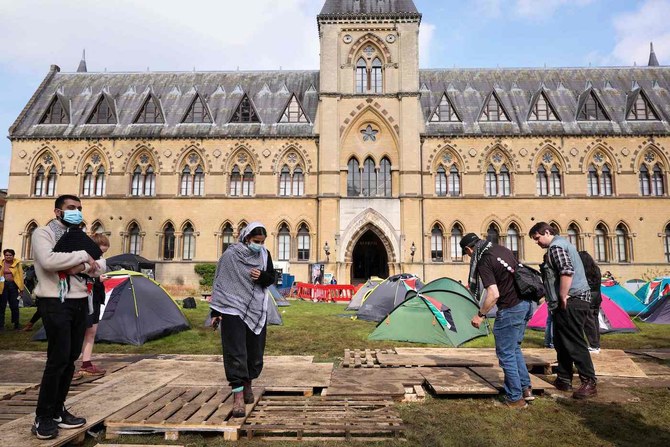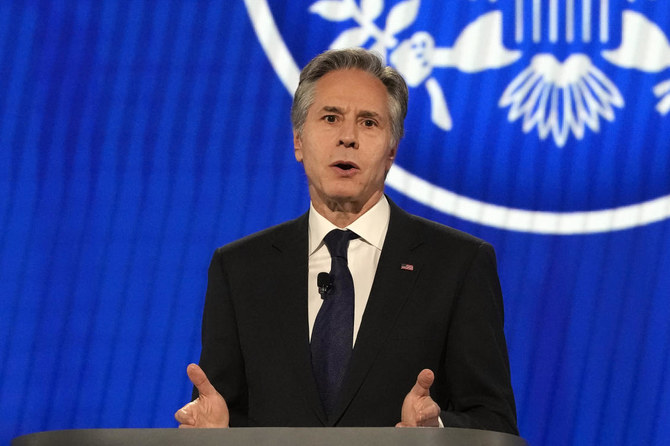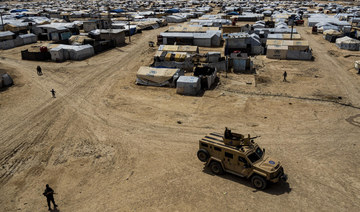BUDAPEST: Pope Francis arrived in Hungary on Sunday on his first foreign trip since undergoing intestinal surgery in July, kicking off a four-day pilgrimage with an awkward meeting with Prime Minister Viktor Orban, who represents the type of populist, nationalist leader Francis frequently criticizes.
Orban, whose anti-migration policies clash with Francis’ call for refugee welcome, greeted the Argentine pope at the Palace of Art and the two went into a private meeting attended also by the Hungarian president and Vatican officials.
A photo of the encounter released by Orban’s office showed the prime minister leaning into shake the hand of Francis, whose face wasn’t shown.
Francis is only spending seven hours in Budapest before moving Sunday afternoon onto a four-day tour of neighboring Slovakia. The lopsided itinerary suggested that Francis wanted to avoid giving Orban the political boost that comes with hosting a pope for a proper state visit ahead of elections next spring.
Vatican and Hungarian officials have insisted Francis isn’t snubbing Hungary, noting that the Hungarian church and state only invited him to close out an international conference on the Eucharist on Sunday.
Organizers expect as many as 75,000 people at the Mass in Heroes’ Square, which went ahead with few coronavirus restrictions even as Hungary, like the rest of Europe, is battling infections fueled by the highly contagious delta variant.
Despite pleas from the Hungarian Chamber of Doctors, congress organizers decided not to require COVID-19 vaccinations, tests, masks or social distancing for attendance. Organizers, however, said they had ordered 30,000 masks to distribute as well as hand sanitizer, and urged all attending to be prudent, but few in the crowd wore masks.
During the flight from Rome, Francis seemed in good form two months after having 33 centimeters (13 inches) of his colon removed for what the Vatican said was a severe narrowing of his large intestine. The 84-year-old pope stayed so long greeting journalists at the back of the plane that an aide had to tell him to get back to his seat because it was time to land.
Francis said he was happy to be resuming foreign trips again after the coronavirus lull and then his own post-operative recovery. “If I’m alive it’s because bad weeds never die,” he quipped about his health, quoting an Argentine dictum.
Orban has frequently depicted his government as a defender of Christian civilization in Europe and a bulwark against migration from Muslim-majority countries. Francis has expressed solidarity with migrants and refugees and criticized what he called “national populism” advanced by governments like Hungary’s. He has urged governments to welcome and integrate as many migrants as they can.
After meeting with Orban, Francis presided over a joint encounter with his own bishops, and then Christian and Jewish leaders.
Hungary’s large Jewish population was devastated during the closing months of World War II, with more than 550,000 Jewish deaths. The vast majority were deported within a two-month period in 1944 with the assistance of Hungary’s fascist Arrow Cross Party, and most were sent to the Auschwitz concentration camp in occupied Poland.
More Hungarians died in Auschwitz than any other nationality, and more Hungarian Jews perished in the Holocaust than from any country other than Poland and the Soviet Union.
Hungary’s government under Orban has been accused of trafficking in veiled antisemitic stereotypes, largely aimed at Hungarian-born American financier and philanthropist George Soros, whom the government frequently accuses of meddling in the country’s internal affairs.
Government leaders have often referenced a “network of globalist elites” covertly working to subvert its power. Last year, one government spokesman pointed to a “Soros cabal” aiming to influence Hungary’s politics through the funding of civic organizations.
About 39 percent of Hungarians declared themselves to be Catholic in a 2011 census, while 13 percent declared themselves to be Protestant, either Lutheran or Calvinist, a Protestant branch with which Orban is affiliated. A tiny fraction of the population is Jewish.




